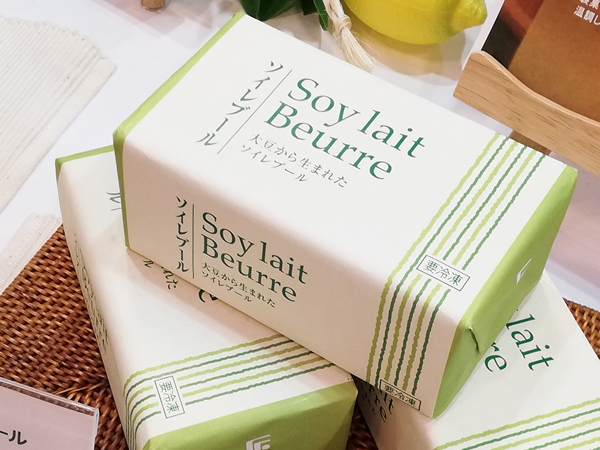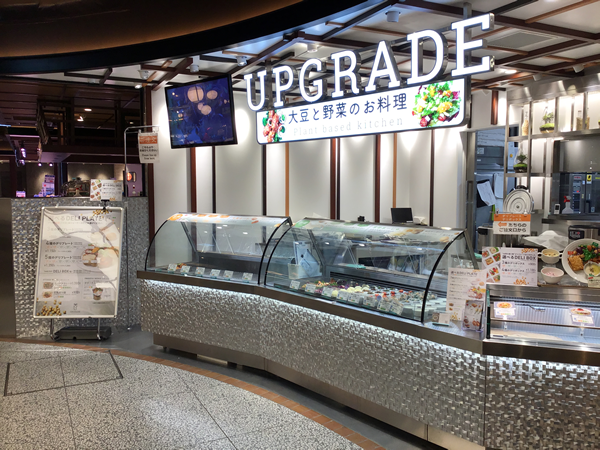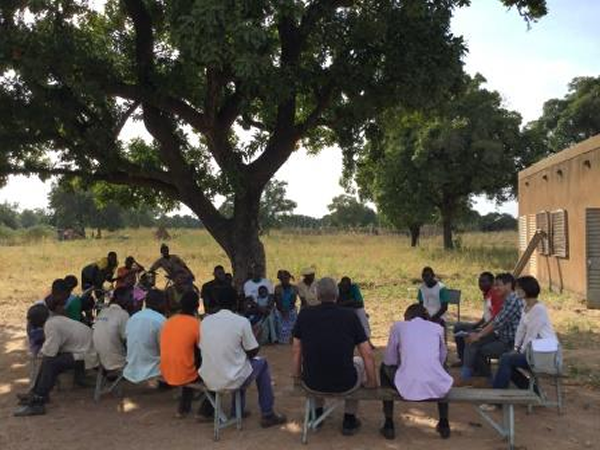Providing solutions to food resources shortage
Focus SDGs
Management information
Relation between themes and business activities
Since shortly after its founding, the Fuji Oil Group aims at providing solutions to food resources shortage associated with population growth by using plant-based ingredients. For more than 60 years since 1957, we pursue the possibility of soy protein under the belief that plant-based protein can compensate for the shortage of animal protein sources. It is estimated that the world population will grow to 9.7 billion by 2050. We recognize that we can provide solutions to food resources shortage due to population growth and other factors by utilizing food ingredients made from plant-based protein.
Basic approach
There is a growing sense of crisis in society toward food shortages and environmental problems. In the past, plant-based protein ingredients were used merely as substitutes for animal protein sources. Instead, under the slogan, “Providing the deliciousness of plant-based food ingredients while solving social problems,” we aim at establishing a new category of plant-based foods in the market, thereby contributing to solving social issues.
Promotion system
We promote our initiatives to provide solutions to food resources shortage under the supervision of the Chief Technology Officer (CTO). Moreover, the ESG Committee*, which is an advisory body to the Board of Directors, confirms the progress and results of these initiatives as a priority theme for ESG management.
* Refer to the URL below for details of the ESG Committee.
https://www.fujioilholdings.com/en/csr/approach/
Objectives / Results
FY 2019 objectives
- Developing and launching plant-based food ingredients as alternatives to animal protein and dairy products
FY 2019 results
The sales volume of plant-based food ingredients as alternatives to animal protein and dairy products has grown steadily over the past three years. We believe that this is mainly a result of our initiatives to propose delicious and healthy food ingredients in Japan.
![]()
| Sales volume (vs. FY 2018) | Sales volume (vs. FY 2016) | |
|---|---|---|
| Plant-based food ingredients as an alternative to animal protein sources | 140% growth | 110% or higher growth every year |
| Plant-based food ingredients as an alternative to dairy products | 106% growth | 141% growth |
Next Step
It is predicted that food resources will be in short supply due to a population increase and growing environmental problems. We will promote initiatives to help solving this social issue, including commercializing plant-based food ingredients as alternatives to animal protein sources and dairy products. In FY 2020, we aim to develop full-fledged meat alternatives made from plant-based ingredients and commercialize cheese alternatives and soups made from plant-based ingredients.
Specific initiatives
Broadening a lineup of alternative food ingredients through research and development
The Fuji Oil Group strives to develop alternative food ingredients that feature deliciousness unique to plant-based ingredients by taking advantage of our long-cherished soy protein development technologies, as well as latest knowledge.
For example, in FY 2019, we developed the soymilk cream butter Soy Lait Beurre as a new product that uses our proprietary Ultra Soy Separation (USS) manufacturing method. The Soy Lait Beurre is a plant-based butter featuring a clear mouthfeel. It also makes food or dishes more delicious by nicely complementing the flavors of other ingredients. When kneaded into dough, it makes bread or baked sweets melt in the mouth and feel fluffy and moist.
By proposing and providing delicious plant-based protein ingredients, we contribute not only to delivering the joy of food to consumers, but also to solving food shortages in a way with little environmental impact.

Soy Lait Beurre 
Soy raisin sandwich cookies
Creating value through market proposals
Interest in plant-based foods has rapidly grown worldwide because of mounting public concern about social issues, including climate change and population increase. One example of this concern is the action for the future of the earth led by the young generations commonly known as “millennials”* and “Generation Z.”*2 Since social media enables individuals to deliver instant messages to the world, the way in which information spreads has changed completely in a very short time. In response to this change, Fuji Oil Co., Ltd. should also change the process, speed, and concept of commercialization. To helping achieve this, in September 2019 we opened temporarily a restaurant at the Daimaru Shinsaibashi store named “UPGRADE Plant based kitchen,” featuring dishes made with plant-based ingredients. The overwhelming majority—over 70%—of guests are women up to their 40s. The restaurant has also enjoyed high reputation among international guests, some of whom are frequent guests. We position the restaurant as the Fuji Oil Group's base for sharing its Plant-Based Food Solutions (PBFS) with the general public and place for co-creation with guests/customers. From now on, we will launch new products developed on the basis of the restaurant’s sales data, menus, and operations.
* Millennials: People born between 1981 and 1996 (according to one of the major views)
*2 Generation Z: People born in 1997 or later (according to one of the major views)

UPGRADE Plant based kitchen at the Daimaru Shinsaibashi store 
Youlinji-style deep-fried soy meat
Soy product supply chain construction and a business survey aimed at improving nutrition and increasing women’s income in Burkina Faso
Fuji Oil Ghana, a Fuji Oil Group company in Ghana, imports much of shea nuts as a raw material from the neighboring Burkina Faso. Many of the women who harvest shea nuts in the region are also engaged in soybean production.
Therefore, the Fuji Oil Group conducted a business feasibility study on the procurement of soybeans, and the development, manufacture and sale of "soy meat" in Burkina Faso. The aim is to improve the nutrition of local consumers and increasing local farmers' income. This project was selected as a 2018 Survey on Businesses to Address Developing Country Issues (SDG Business)* by the Japan International Cooperation Agency (JICA). Within the JICA framework, the contribution of this project to achieving specific SDG targets was also examined.
So far progress has been made in building a local soybean procurement network and surveying the current status of female soybean farmers’ organizations. Based on the results, an initiative was launched to increase the soybean yield. In addition, product development methods suitable for local people’s dietary habits and nutritional conditions and other issues are being discussed in cooperation with various stakeholders. The aim is to contribute to solving nutritional problems, such as stunting and micronutrient shortage.
Further surveys are planned at multiple stages of the value chain so that we can understand social issues from the perspectives of local people and contribute to solutions to those issues by taking advantage of our strengths.
* Survey on Businesses to Address Developing Country Issues (SDG Business) supported by the Japan International Cooperation Agency (JICA):
JICA provides financial assistance of up to 50 million yen per proposal for a maximum of three years for Japanese companies planning to start a business that will contribute to the attainment of the SDGs in developing countries.

A meeting with a farmers’ group 
soybean fields
